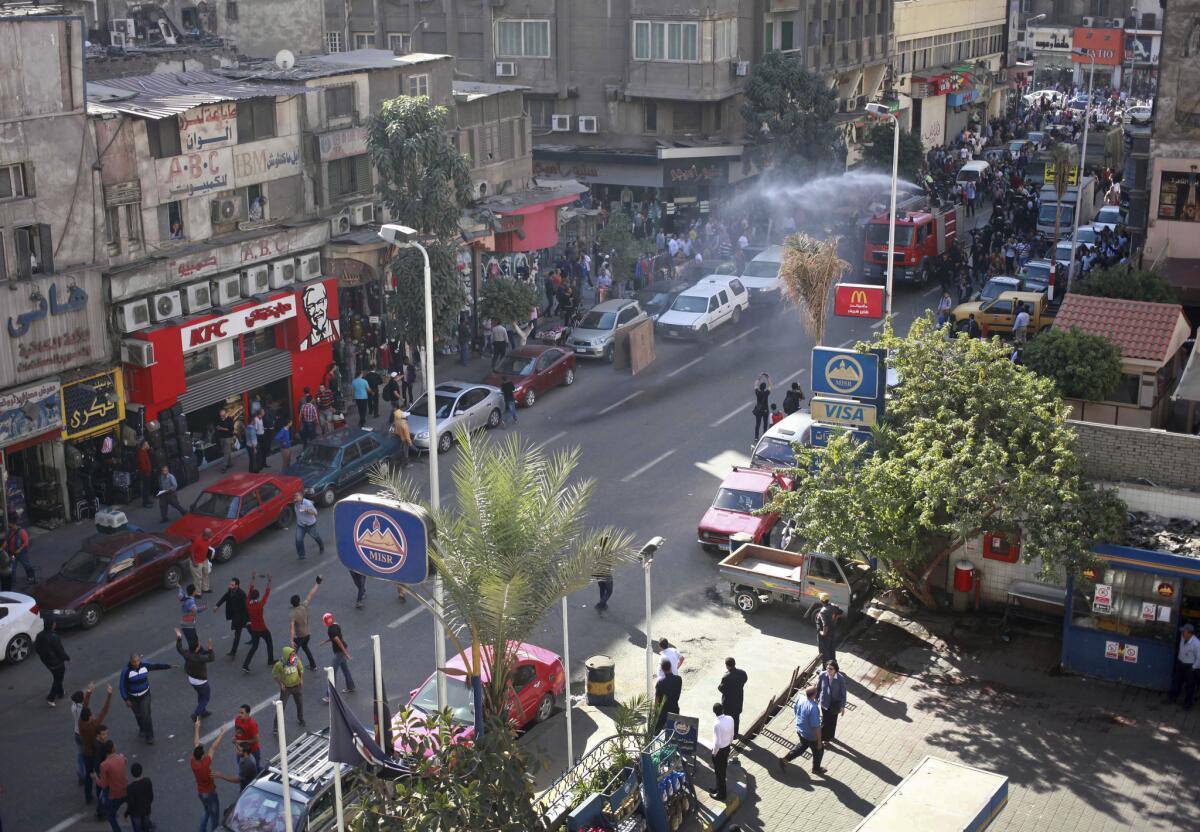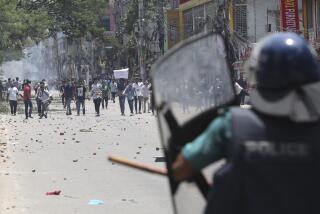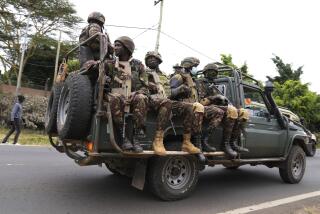Egypt police fire water cannons on protesters testing new law

CAIRO -- Egypt’s tough new anti-protest law got its first major test Tuesday when dozens of demonstrators gathered in the capital to protest harsh police tactics -- and were met with drenching water-cannon blasts.
The anti-protest measure, which took effect Sunday, forbids spontaneous street demonstrations, which have been a prominent feature of public life here since the enormous 2011 uprising that toppled Hosni Mubarak, the autocratic longtime president.
The private television channel CBC quoted an Egyptian police spokesman as saying that Tuesday’s rally, commemorating the earlier death of a protester at police hands, was broken up because the organizers had not sought permission beforehand for the gathering, as the new law requires.
Political activists have denounced the measure, saying it is part of a pattern of authoritarian moves on the part of the military-backed interim government that took power in July. In the intervening months, the administration has moved on a number of fronts to muzzle political dissent, particularly that coming from Islamists loyal to ousted president Mohamed Morsi.
Morsi’s Muslim Brotherhood has been the target of a fierce campaign that has left more than 1,000 of its supporters dead and the group’s top leadership in jail, along with thousands of rank-and-file members. Morsi himself was put on trial earlier this month by the interim government; the proceedings were adjourned until January.
The protest law was implemented soon after the expiration of a three-month-long state of emergency, which gave the authorities sweeping powers against anyone deemed a security threat. The protest law also gives the security forces and the government broad discretion to suppress political opponents.
The government says it is presiding over a democratic transition, with a constitutional referendum and presidential and parliamentary elections to take place next year. But activists say that the protest law, together with other curbs on freedom of speech and expression, bodes ill for that process. The Obama administration has echoed those concerns.
ALSO:
Scottish government outlines case for independence
Drone protesters block NATO supply routes in Pakistan
Philippines typhoon: U.S. aid efforts begin focusing on recovery
laura.king@latimes.com
Twitter: @LauraKingLAT
More to Read
Sign up for Essential California
The most important California stories and recommendations in your inbox every morning.
You may occasionally receive promotional content from the Los Angeles Times.










